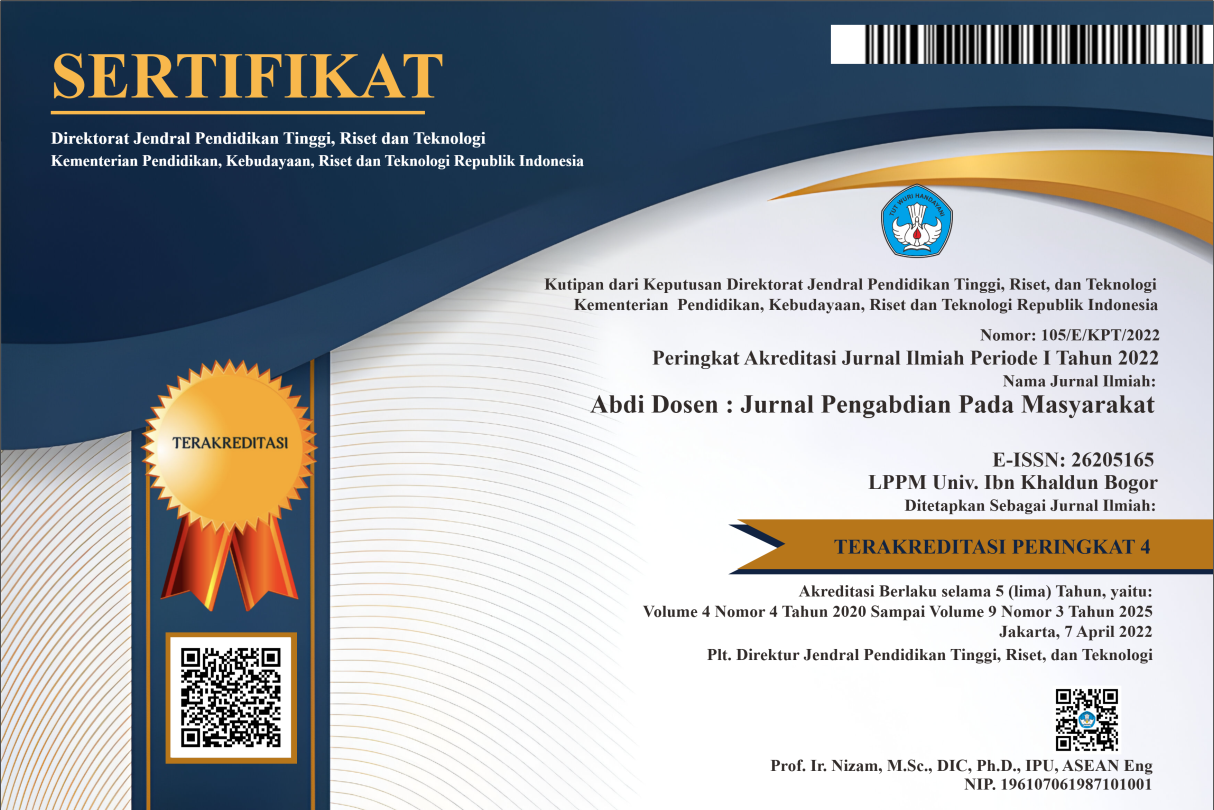SUSTAINABILITY SCHOOL-BASED NUTRITION EDUCATION FOR NON-COMMUNICABLE DISEASE PREVENTION IN SMA SWASTA UTAMA MEDAN
Abstract
Non-communicable diseases (NCDs) are a growing public health concern globally and in Indonesia, strongly associated with poor nutrition and unhealthy lifestyles. Schools are effective platforms for health promotion through sustainable nutrition education. The program was conducted at SMA Swasta Utama, Medan (March–July 2025) with 10 teachers and 36 students, involving preparatory coordination, development of educational tools, and delivery of nutrition education through lectures and multimedia discussions. Knowledge improvement was assessed using pretest–posttest with the Wilcoxon paired test, while teachers also received training in anthropometry, blood pressure monitoring, biochemical testing, and the Productivity Risk Self-Assessment Tool (PRISAT), supported by the provision of self-monitoring equipment. Results showed significant knowledge improvements in both groups, with clear shifts from poor to moderate and good categories (p<0.05). Teachers achieved greater gains than students, reflecting their role as facilitators and role models in health education. PRISAT screening revealed most teachers were low risk, though some were categorized as high risk, underscoring the importance of early detection. This program demonstrates the effectiveness of integrating nutrition education and health monitoring to strengthen school-based NCD prevention.
Copyright (c) 2025 Risti Rosmiati, Iza Ayu Saufani, Hardi Firmansyah, Wina Dyah Puspita Sari, Fathia Rahmadini

This work is licensed under a Creative Commons Attribution-NonCommercial 4.0 International License.






















